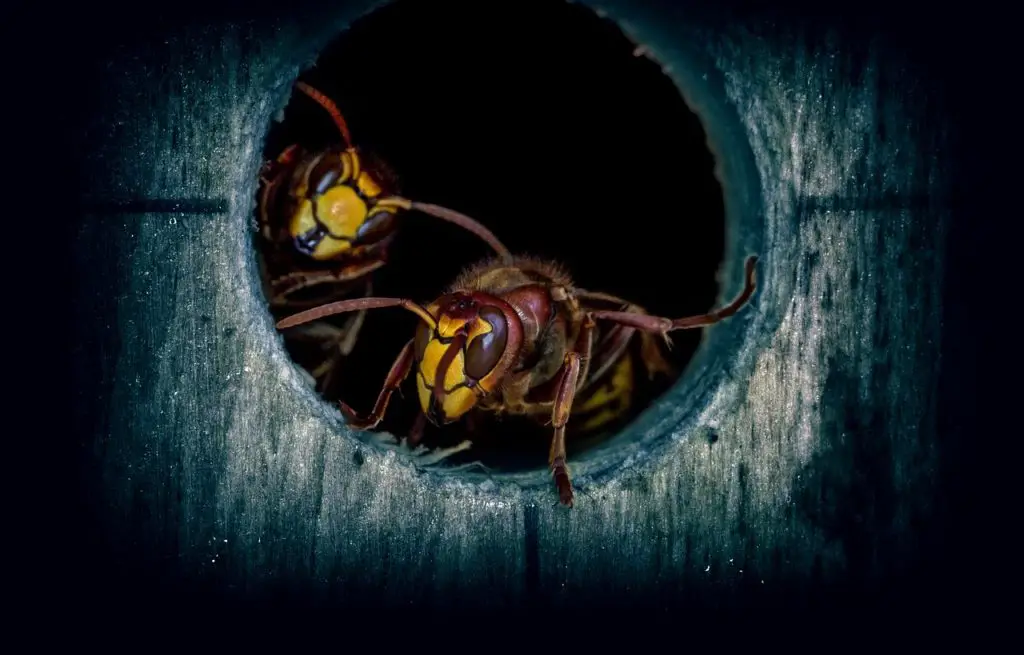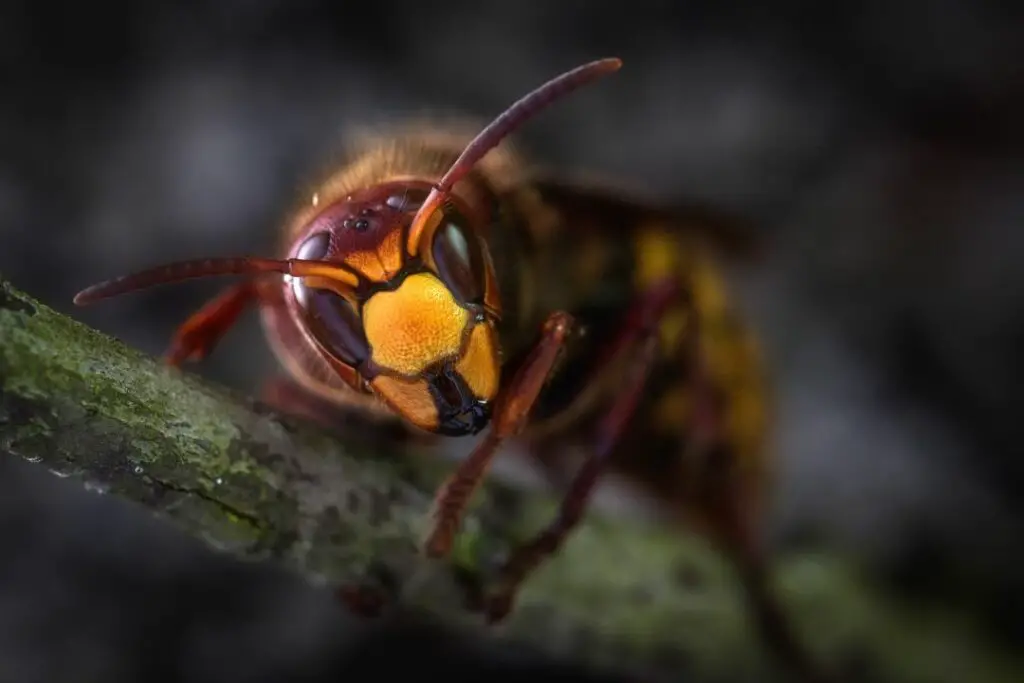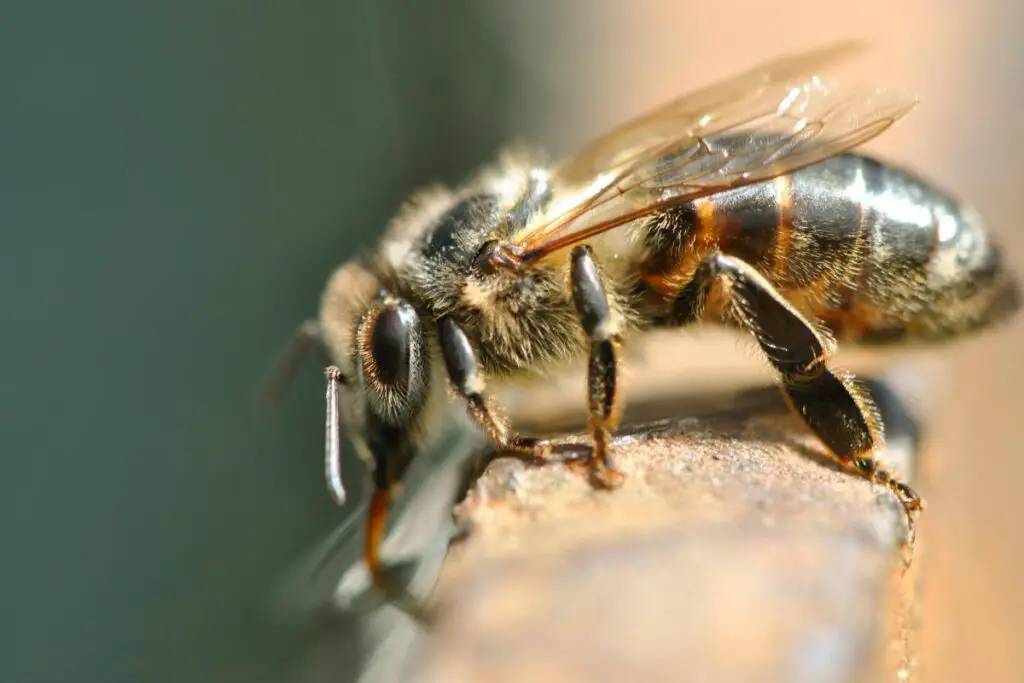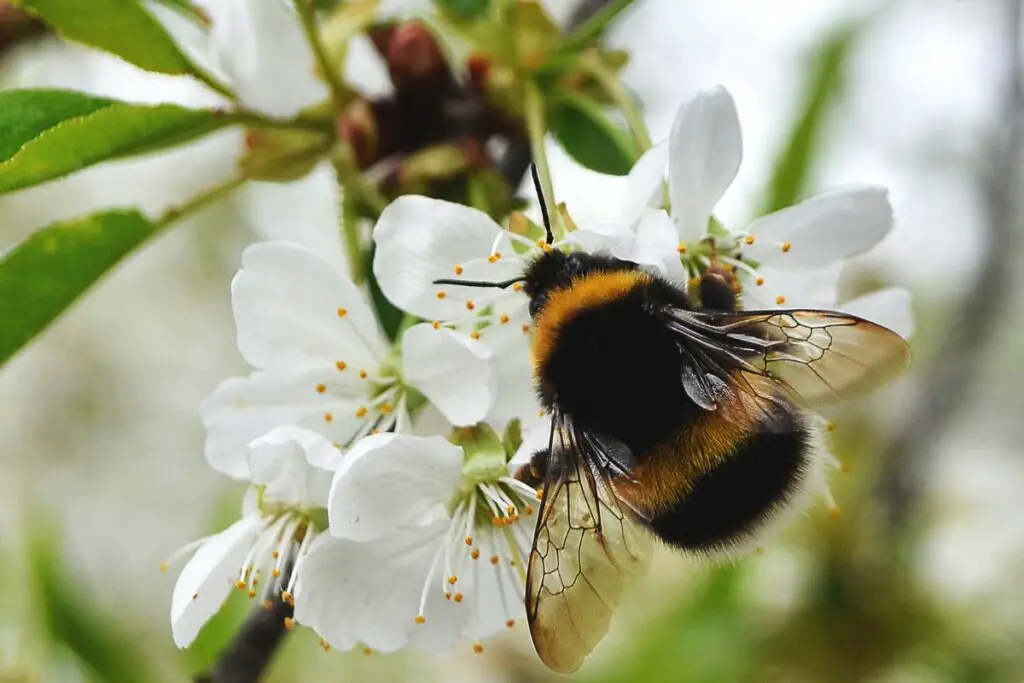Last updated on September 26th, 2023 at 04:13 pm
Asian hornets have been sighted in record numbers in the UK, causing concern for the native bee populations. These invasive species are a threat to the environment and bee colonies, as they feed on honeybees and other beneficial insects.
The hornets, which have a darker abdomen, orange faces, and yellow-tipped legs, have been spotted in Kent, Devon, Dorset, and Hampshire, and are expected to spread throughout Southern England. Scientists and the government are taking measures to prevent their arrival and establish nests in the UK.
The National Bee Unit and Department for Environment, Food and Rural Affairs (DEFRA) have set up the Asian Hornet Watch app, where the public can report sightings of these hornets to prevent their arrival and eradicate them if necessary.
The Asian Hornet Threat: What It Means for Our Bees
Asian hornets are causing quite the buzz in the UK. This year, sightings of these invasive insects have surged, leading to heightened concerns about the future of our native insects, especially our beloved bees. But what makes these hornets so ravenous, and how are they impacting our ecosystem?

The Hunger of the Asian Hornet
Asian hornets have a notorious reputation for their voracious appetite. They’re not just any regular hornet; their hunger for bees is unparalleled. This poses a significant threat to our native bee populations, which are already under various environmental pressures.
Why are they so hungry?
- Adaptation: Asian hornets have evolved to be efficient hunters, targeting bees as a primary food source.
- Competition: In their native habitats, they face stiff competition, making them aggressive hunters.
- Nutrition: Bees provide essential nutrients that hornets need for their growth and survival.
The Impact on European Beekeepers
European beekeepers have been on the frontline, witnessing the devastation caused by these hornets. With the hornets’ arrival, beekeepers have reported:
- Decreased honey production: With fewer bees, there’s less honey.
- Increased bee mortality: Hornets can decimate entire hives in a short period.
- Higher maintenance costs: Beekeepers have to invest more in protective measures.
The Battle Against the Invasion
Thankfully, the situation isn’t entirely bleak. Scientists, along with the government, are joining forces to prevent the Asian hornet from gaining a stronghold in the UK.
Current Initiatives:
- Monitoring and Reporting: Setting up surveillance systems to track hornet movements.
- Public Awareness: Educating the public about the hornets and how to report sightings.
- Research: Studying the hornets’ behaviour and biology to develop effective control measures.
- Collaboration: Working with international partners to share knowledge and resources.
Conclusion
The Asian hornet invasion is a pressing concern, but with concerted efforts from scientists, the government, and the public, there’s hope for our bees. As we continue to work towards a solution, it’s essential to remember the broader mission: promoting the well-being of all bees, not just honeybees. After all, every bee plays a crucial role in our ecosystem. And if you’re looking to make a difference, consider supporting initiatives like Revive a Bee, which offers bee revival kits to help feed tired and thirsty bees.
Note: For those interested in the original podcast, you can learn how to listen here on The Guardian.





